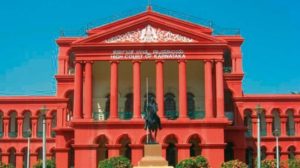
Source: karnatakajudiciary.kar.nic.in
Background:
M/s. Dream Merchants (hereinafter referred as ‘the Petitioner’) filed a writ petition under Articles 226 and 227 of the Constitution of India, at the High Court of Karnataka, praying to quash the impugned assessment order passed by the assessing authority, Entertainment Tax Officer (hereinafter referred as ‘the Respondent’) under Section 6-A (3) of the Karnataka Entertainment Tax Act, 1958 (hereinafter referred as ‘the Act’) wherein an entertainment tax of INR 4,75,000 was imposed for the ‘Bangalore Fashion Week’ organized by the Petitioner in 2012.
Issue:
Whether entertainment tax can be levied on events such as Fashion Week?
Petitioner’s arguments:
- The event of Fashion Week organized by the Petitioner does not fall within the definition of ‘Entertainment’ as defined in Section 2 (e) (iii) of the Act because it was an event in which the apparels were put in exhibition on mannequins and live models and limited entry was given through passes or tickets upon sponsorship by various other manufacturers or business houses.
- The exhibition did not afford any gratification, diversion or amusement.
- The event organized by the Petitioner wasn’t a fashion show and it was merely an event for display of apparels and dresses and other products of similar nature.
Respondent’s arguments:
- An effective alternate remedy is available to the Petitioner.
- The event organized by the Petitioner falls under the definition of ‘Entertainment’ under the Act.
Karnataka High Court’s decision and key takeaways:
- The event organized by the Petitioner which included lifestyle parties, after hour parties, press conferences, display of designer products through mannequins and live models etc., would fall within the definition of ‘Entertainment’ under the Act.
- The words used in the definition of ‘Entertainment’ are very wide in nature and include all pervasive entertainments so as to cover all kinds of amusement, entertainment, exhibition or performance or pageant or a game or sport whether held in indoor or outdoor and make them taxable.
- ‘Payment for admission’ as defined under Section 2 (i) (iv-a) of the Act, which includes sponsorship fees and advertisement charges, was collected by the Petitioner in the present case. Thus, the receipts in the hands of the Petitioner, the Event organizer, even though not being paid by the individuals entering in the said indoor place in the Hotel, would be liable to pay entertainment tax on such payment for admission charges including the sponsorship charges collected by it for the entertainment, amusement etc., provided by it to the visitors.
- Common parlance test in the taxing statutes, apart from dictionary meaning, needs to be looked at while dealing with such controversy.
- The overlapping of the words employed in the definition of ‘Entertainment’ is intended to cover different kinds of events and things of entertainment and they cannot be construed in separate and water tight compartments.

